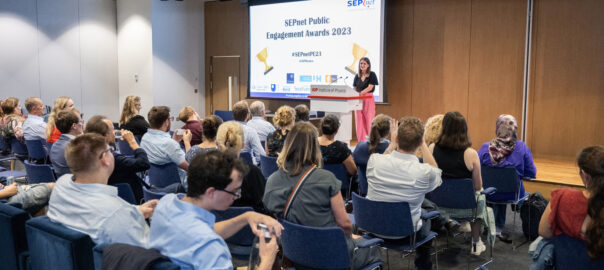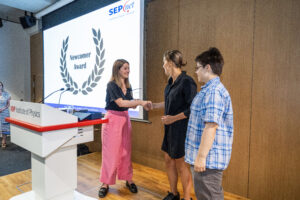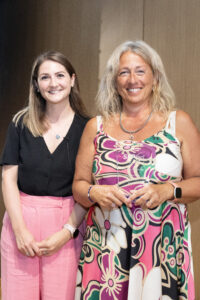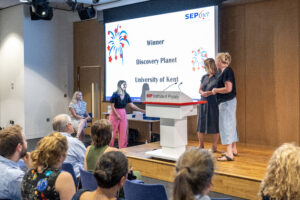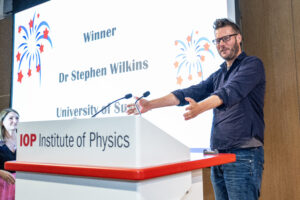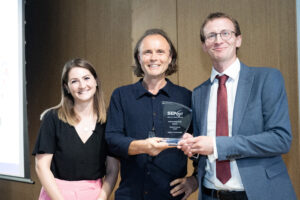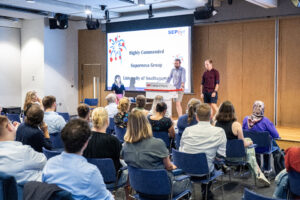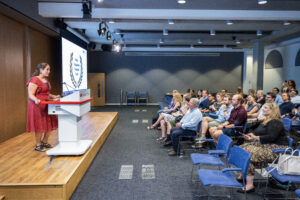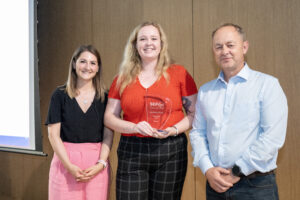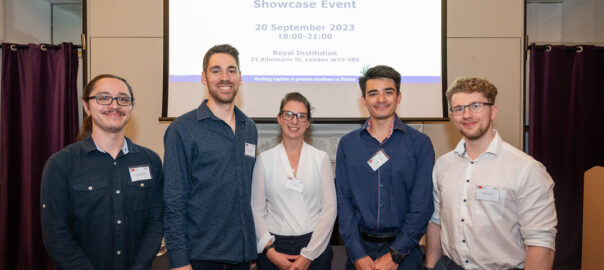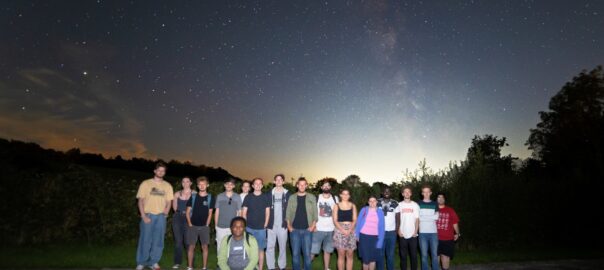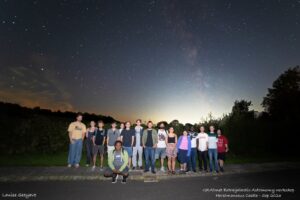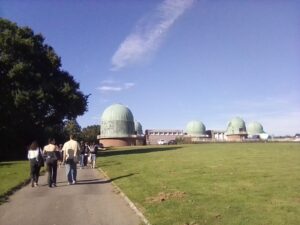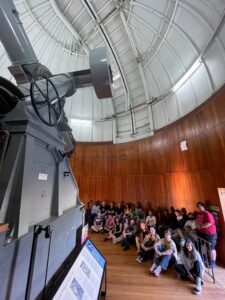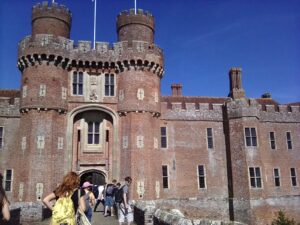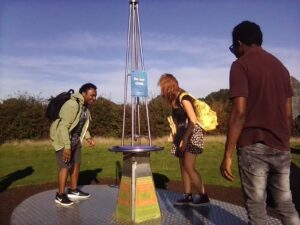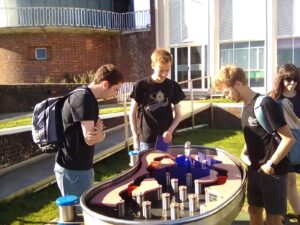The SME-DTN Showcase event was held on Wednesday, 20 September 2023 at the Royal Institution in Mayfair. It was a great opportunity for our SME-DTN postgraduate researchers to present their research projects to such a varied audience and to network with SEPnet contacts. One of the guests summed up the evening saying it was “entertaining, educational and nourishment for the soul”!
See below for the list of projects presented on the night:
Callum Barnes, University of Kent/Body Rocket: Machine learning for optimisation of cycling performance using real-time aerodynamics. The project aims to develop machine learning algorithms for real-time monitoring of aero dynamic drag, allowing cyclists to adjust their on-bike position dynamically for optimal performance.
Anthony Criscuolo, University of Surrey/Leo Cancer Care/National Physical Laboratory: To develop a quantitative rationale for frequency & tolerance of QA programmes for current & state-of-the-art radiotherapy delivery technologies, requiring the development of innovative methodologies to quantify the effect of tolerance levels & to assess clinical impact & patient outcomes.
Kevin Doty, University of Sussex/Advanced Materials Development: Functional Nanomaterials Inks: The development of scalable ink production processes for functional nanomaterials; Characterisation of printed films & functional nanomaterials and Integration of printed nanomaterials films within device structures.
Stephanie King, University of Hertfordshire/3-Sci EngD: The development of a portfolio of distributed condition management sensors for wind turbines and carbon storage infrastructure.
Pye Kwye, University of Surrey/Addionics: Sustainable manufacturing of lithium-ion batteries by dry coating of solvent-free electrodes. To develop dry coating methods, to enable solvent-free electrode processing, for sustainable manufacturing of LIBs, to drive the cost reduction of LIBs. The project will combine experimental and computational approaches to develop novel dry coating process, understand how the dry coating process affect the properties and performances of the electrodes, and optimize the dry coating parameters to achieve high performance LIBs.
Alex McCann, University of Sussex/Advanced Materials Development/Rapiscan: Characterisation and crosslinking of graphene oxide towards explosive percolation in nanocomposites. Explosive percolation describes a phenomenon in composite materials where network conductivity coincides with additional chemical modification of the overall system. It has been demonstrated that templated composites of latex polymer and graphene oxide can form highly-conductive materials. Nanocomposite materials offer a way forward in many practical applications including flexible and wearable electronics, energy storage and harvesting, and strain sensing technologies. Understanding the mechanisms enabling this phenomenon may lead to further application in composites of metals, ceramics and thermosetting polymers.
Thank you to all participating companies and SEPnet partners in this scheme and to RED Fund for supporting this initiative.
L-R Alex McCann, Kevin Doty, Cristobel Soares,SME-DTN Project Manager, Stephanie King, Anthony Criscuolo and Callum Barnes.

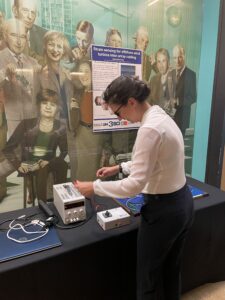 Stephanie setting up her demonstration kit!
Stephanie setting up her demonstration kit!

